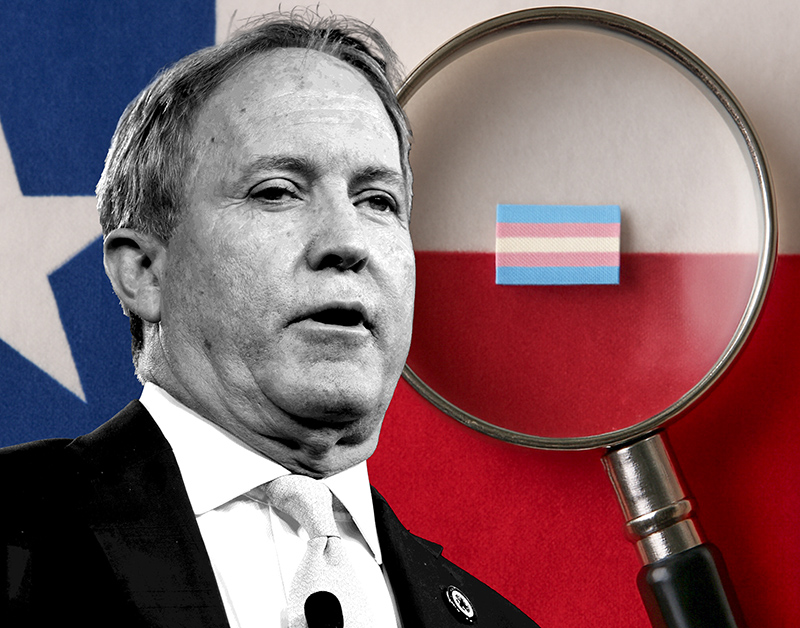Supreme Court Lets Trans Student Use Boys’ Bathroom
The high court rejected South Carolina’s request for an emergency injunction to fully enforce its school bathroom ban.

On Sept. 10, the U.S. Supreme Court denied South Carolina’s emergency request to enforce its bathroom ban, allowing a transgender boy at a public high school to keep using the boys’ restroom while his legal challenge to the law moves forward.
South Carolina pointed to several recent actions by the Trump administration to justify its request, including an executive order threatening to pull federal funding from schools that don’t maintain sex-segregated facilities, enforcement actions by the U.S. Department of Education, and the Supreme Court’s June ruling upholding Tennessee’s ban on gender-affirming care for minors.
The court stressed that its denial was procedural, not a ruling on the merits, finding that South Carolina had failed to meet the standards required for an emergency injunction.
By rejecting the state’s request, the Supreme Court allows the student, identified as “John Doe,” to continue using the boys’ restroom at his school. In his lawsuit, Doe argues the ban violates both the Equal Protection Clause of the Constitution and Title IX, the federal law prohibiting sex-based discrimination in schools receiving federal funds.
The order also left intact a 2020 ruling by the 4th U.S. Circuit Court of Appeals, which binds South Carolina and found categorical bans on transgender students’ restroom use to be discriminatory. The Supreme Court declined to review that case at the time, with seven of the nine justices voting to let the appeals court decision stand.
The order noted that Justices Clarence Thomas, Samuel Alito, and Neil Gorsuch said they would have granted South Carolina’s request to block the 4th Circuit’s ruling in Doe’s favor and allow the state to enforce its bathroom ban.
In its ruling last month, the 4th Circuit said precedent from Gavin Grimm’s 2016 lawsuit against the Gloucester County School Board required a decision in Doe’s favor, according to The New York Times.
“Doe is a 14-year-old student who simply wishes to use the restroom,” wrote Judge Albert Diaz, an Obama appointee, in a concurring opinion. “Doing so is a biological necessity. Doing so in restrooms that match his gender identity is his right under our precedent.”
Judge G. Steven Agee, a George W. Bush appointee, noted in a concurring opinion that while he disagreed with the Grimm ruling, its precedent was binding. Citing an earlier opinion on West Virginia’s transgender sports ban, Agee said he hoped “the Supreme Court will take the opportunity with all deliberate speed to resolve these questions of national importance.” Until then, he added, the precedent stands.
“This ruling only creates an exception for one student,” said South Carolina Attorney General Alan Wilson (R), calling the decision a temporary setback. “The state’s bathroom law remains in full effect for everyone else.”
Alexandra Brodsky, an attorney with Public Justice, which represents Doe, praised the Supreme Court’s order.
“Contrary to South Carolina’s insistence, trans students are not emergencies,” she said in a statement. “They are not threats.”
The Supreme Court has a mixed record on transgender rights. It is slated to hear two cases on the constitutionality of state bans on transgender athletes competing on female-designated sports teams. That means the court’s next decisions could set sweeping new precedents for trans rights in schools.
Support Metro Weekly’s Journalism
These are challenging times for news organizations. And yet it’s crucial we stay active and provide vital resources and information to both our local readers and the world. So won’t you please take a moment and consider supporting Metro Weekly with a membership? For as little as $5 a month, you can help ensure Metro Weekly magazine and MetroWeekly.com remain free, viable resources as we provide the best, most diverse, culturally-resonant LGBTQ coverage in both the D.C. region and around the world. Memberships come with exclusive perks and discounts, your own personal digital delivery of each week’s magazine (and an archive), access to our Member's Lounge when it launches this fall, and exclusive members-only items like Metro Weekly Membership Mugs and Tote Bags! Check out all our membership levels here and please join us today!




























You must be logged in to post a comment.